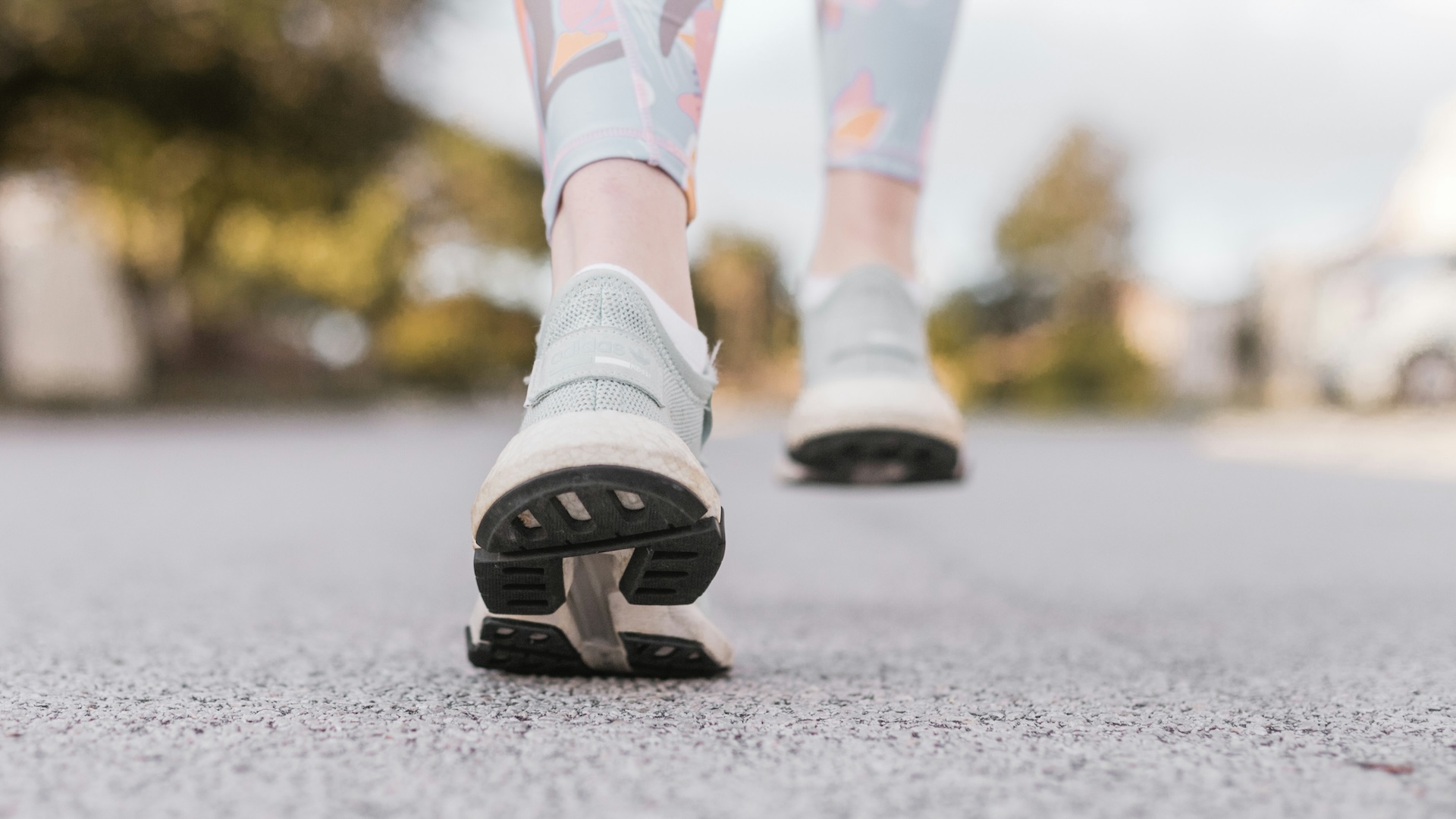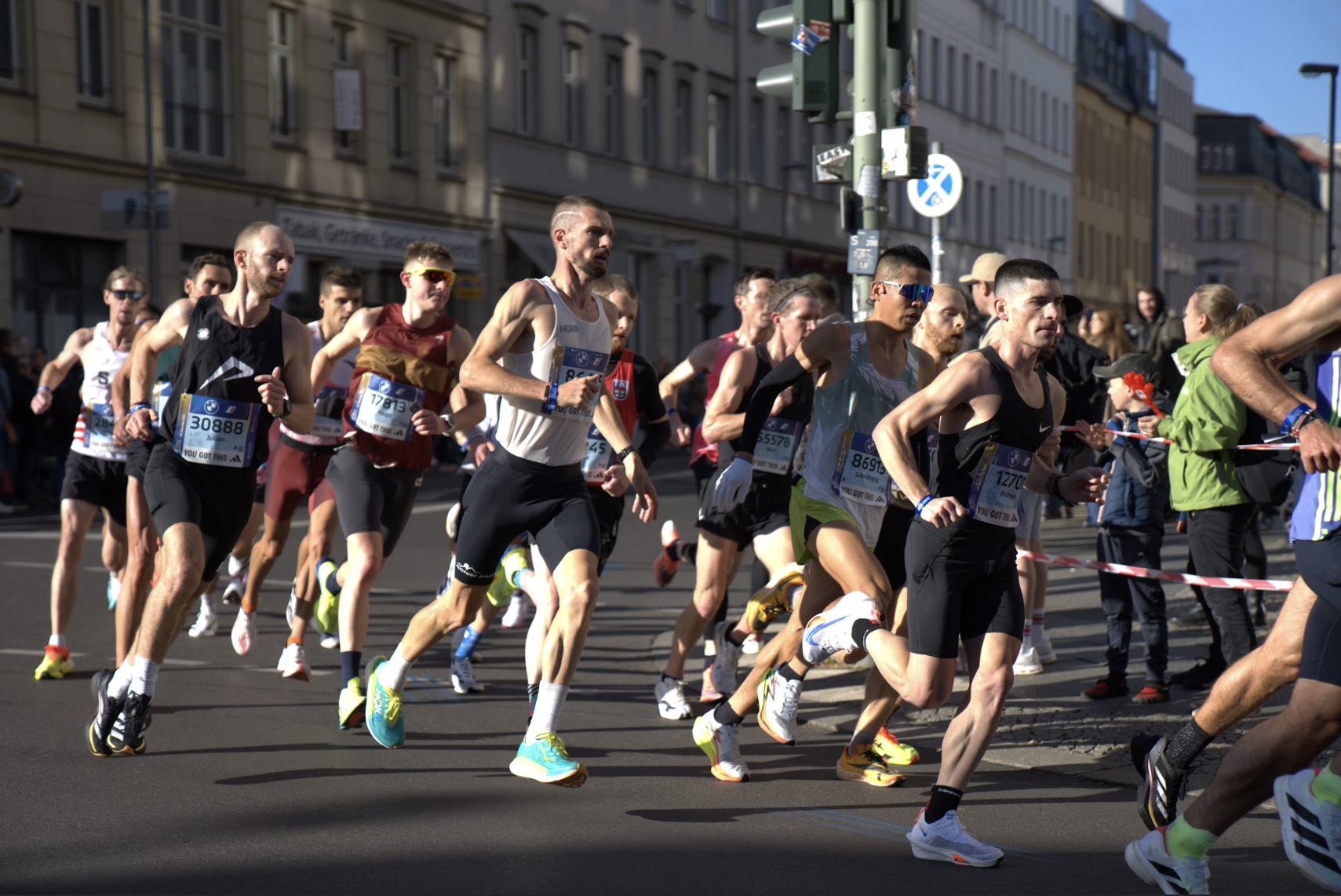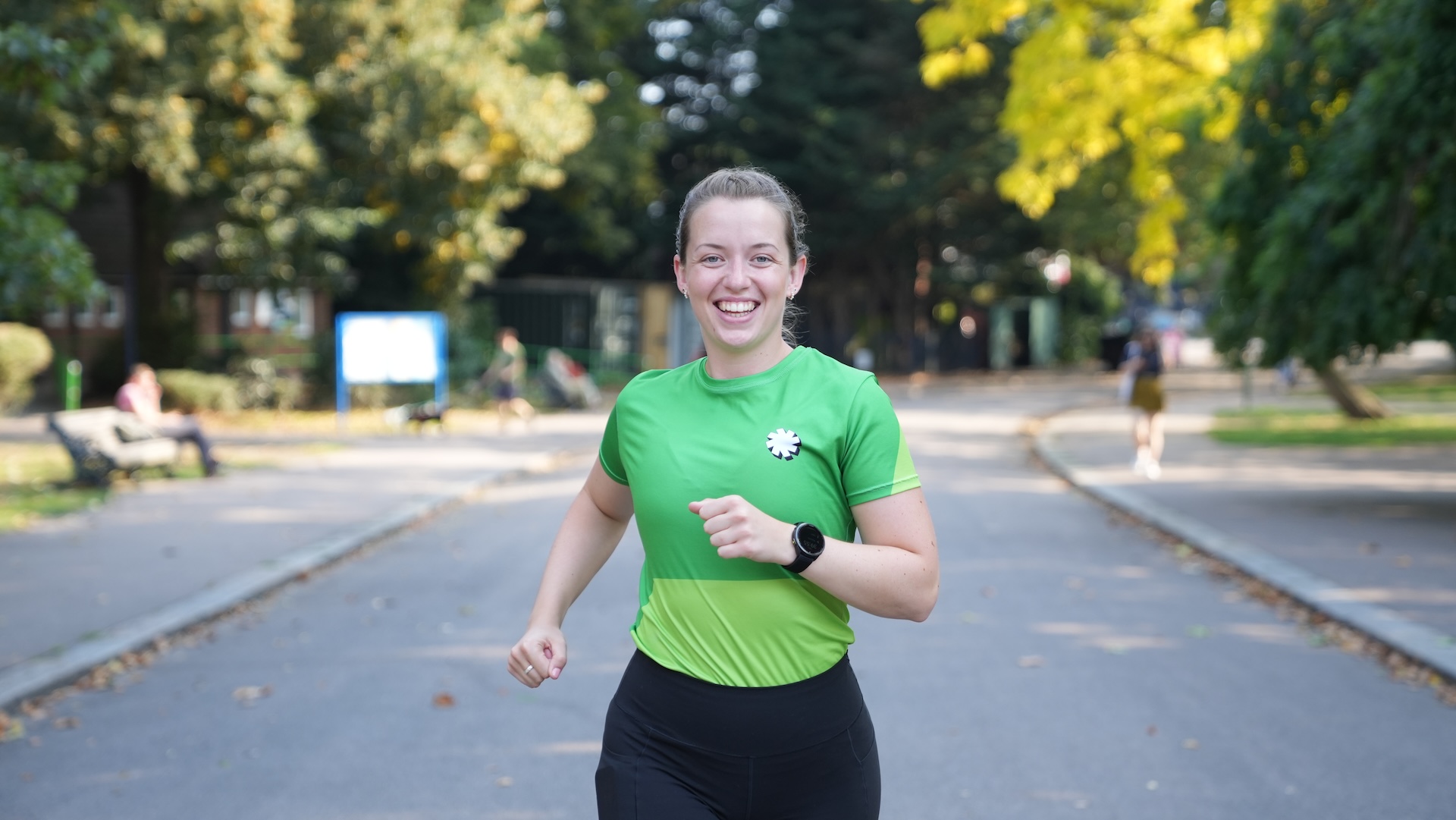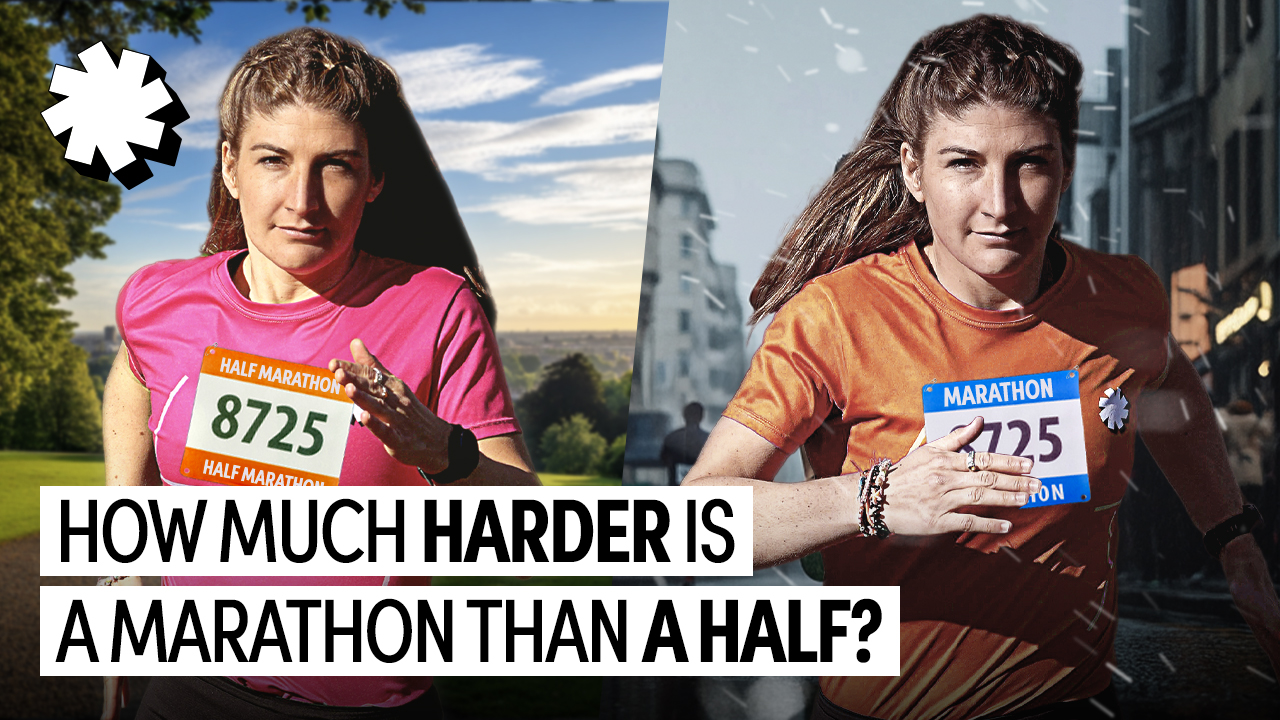When to Run Again After a Marathon

Whether you want to know if you can start running again, or want to see if it’s ok to have a few extra days off, we’ve got the answer for you.
There are no rules about returning to running after a marathon (and the same advice is true for half marathons and ultramarathons, though the longer the run, the more time you may need to recover), but there is some good advice to make sure you can feel ready to run again, however long it takes for you to get there.
What The Body Feels Like After a Marathon
You just ran 26.2 miles! It’s one of the greatest physical feats a human can conquer, but the following day you’ll be challenged by something much more humble: stairs.
Stairs will be your nemesis for a day or two, and it’ll hurt more going down than up. If you’re really sore, then try walking downstairs backwards (it helps, honest – just watch your step!).
There’s a very good chance that you’ll be sore and tired in many places, often places you’ve never been sore before (here comes the DOMS, or delayed onset muscle soreness). You may also have some inflammation and feel significant mental fatigue. All of this is normal and will last a few days. If you’re feeling anything beyond soreness and tiredness, like pains, strains or blisters, then you need these to be healed before even thinking about running again.
After a marathon, your muscles are going to feel weak and damaged, which may take two weeks or more to properly recover. Your immune system will also be weakened, so it’s common to feel run down or have a cold following a marathon. And your heart rate may be higher than usual for a while. The stress of a marathon can last for a considerable amount of time, so go easy on yourself while you’re recovering – you’ve spent months training for a marathon, now you can chill out for a while!
How To Help Marathon Recovery
If you want to recover quickly then this begins right after the race. Rehydrate and consume some protein and carbs right away, then later, when you’re able to eat properly, have a full meal with lots of nutritious ingredients, including more protein and carbs.
Take a shower to freshen up. You could also have an ice bath (if you happen to have one nearby… but don’t take a hot bath right away). Have a nap, then continue to walk around to make sure your legs keep moving after the race. And try and get a good sleep that night. You’ll still wake up feeling sore, but maybe you’ll be a bit less sore than if you didn’t do all those things!
Fancy a post-race beer? Consuming more than one small alcoholic drink will likely affect recovery, hydration and sleep, so perhaps consider something non-alcoholic right after a race. Of course, if you just want to celebrate and eat and drink whatever you want, then you’ve earned it. Your legs will ache whatever you do after a marathon, just know that alcohol may slow down your recovery.
Don’t Run The Day After a Marathon!
Even the pros take a day off after a race. You should take at least two or three days off, and take the whole week off if you want to. As a minimum you should wait until most of the DOMS have gone from your legs before you consider running again.
The two to five days after a marathon is the time for warm baths, a sports massage, or very easy active recovery like cycling or swimming, which can all help increase blood flow around your body and help the recovery process.
Returning To Run
There’s lots of advice on returning to run after a marathon, but there’s no single correct answer as to when you should run again. Everyone heals and recovers in different ways, and needs different amounts of time. For you that might be three days, for someone else it might be three weeks. Either way, don’t rush it.
Most people tend to feel ready to exercise again around five to seven days after finishing their marathon.
To begin you could consider a few days of low-impact non-running cardio to begin. Cycling, elliptical or swimming are good options to see how the body feels and how it reacts – if anything is sore, or you feel more fatigued than expected, it’s a sign that you need more time off and should continue to focus on recovery.
If you think you’re ready to run, then put on your comfiest trainers and aim for 20-30 minutes at a very easy pace. Your body may feel like it’s stiff and running awkwardly to begin, which can be strange: you just ran a marathon, you’re as fit as you’ve ever been, and yet you’re running like your legs have no coordination. That’s all normal, and it’ll feel easier again as you continue to run over the coming days and weeks. The important thing is to see how your body is really feeling. If you’re experiencing more than just muscle tiredness then take some more rest and focus on good hydration, nutrition and sleep.
As you start to feel good running again you can gradually increase the distance over the next week or two, but keep it all nice and easy – there’s no need to be back running reps just yet, and no need to be running for more than 60 minutes. You won’t lose fitness by not doing enough, but you could harm your overall health by doing too much too soon.
If you like lifting weights, then keep them light for a couple of weeks. You’ll probably feel muscle weakness for a little while, so don’t try and push through that to achieve any lifting PBs, especially with leg movements.
Looking for a metric for training readiness? This may seem unusual, but when you wake up, test how tightly you can clench your fist or squeeze a small ball. If it’s difficult for you to squeeze it really tight then it may be a sign that your body isn’t yet ready for a harder workout, whether that’s running or lifting weights.
If I Feel Good Then Can I Run Right Away?
Sure, you could, but a marathon is a huge effort on the body and the mind, and one of the best things about having completed one is that we can take a few extra days to feel recovered and reflect on all the hard work we’ve done, without needing to do any more. We don’t want to risk an overuse injury or becoming too fatigued. It’s not worth the risks just to run a few miles.
The psychological stress and tiredness is also something to consider. Marathon training can take over our thoughts, and to have a break from this can be healthy for the mind.
When Can I Run FAST Again?
The only reason you should be asking this is if you’ve got another race coming up within 4-6 weeks of your marathon, otherwise take a few weeks to just run easy and build up your base mileage again. If you feel like you have an urge to run faster, then start by adding in a few strides before progressing.
When you feel ready to run faster again, start by building up from short reps. Try 10 x 1 minute faster with 1 minute walking in between. If that feels good, then increase the rep distance and intensity.
From three or four weeks post-marathon you may feel able to return to harder and longer workouts as part of a more specific training programme, but don’t try and force your body to get there before it’s ready or you may set your future training back.
Feeling The Post-Marathon Blues?
This is a real thing, so if you find yourself feeling a little down after the race is over, then that’s normal and happens to a lot of us. The marathon was something you trained for and thought about (perhaps obsessively!) for many months, and then it’s all over within a few hours. There’s a huge comedown from that.
Part of the blues comes from the event being over, and regardless of whether it went well for you or not, we’ll always think about how it could have gone better, or things you may have done differently over the race weekend. The marathon is not like a 5K, which you could race most weeks and try to make improvements; marathons take so much more time to build up, recover, then build again. It can be helpful to think about all the things you learnt during your most recent marathon training, and work out how you might want o improve them for the next one.
Another aspect of these blues may come from the reduction in the feel-good chemicals that our bodies release during exercise. When we’re training for a marathon, we get a constant flow of those feel-goods, but now they’re gone. A gradual return to exercise can help alleviate those feelings, as can having other plans, like booking a holiday or seeing friends.
Looking For The Next Challenge?
At mile 22 you probably swore you’d never do this again, but in the hours or days after the race, you might start to think about what’s next.
Some runners already have this thought out, with races booked through the year, but allow at least one month (preferably more) between hard races as your body may need that might time before it’s ready to perform well again.
Signing up for another event can help you to focus again, and to return to structured training. But one thing to avoid is signing up for another marathon within a few weeks, especially if you didn’t run the time you wanted. It can be tempting to try and piggy back your fitness right into another race, but it’s hard to bounce back and run hard right away – it’s possible, but not advisable. Give yourself the chance to recover, then come back even stronger next time.
What are your top tips for marathon recovery? How long do you usually need before you’re feeling ready to run again? Do you enjoy the days and weeks after a marathon?




























Running News
Ingebrigtsen Stars at World Athletics Indoor Championships 2025 – Plus All The Winners!
Sam Ruthe Is First 15-Year-Old To Run A Four-Minute Mile!
Eliud Kipchoge Will Run The 2025 Sydney Marathon!